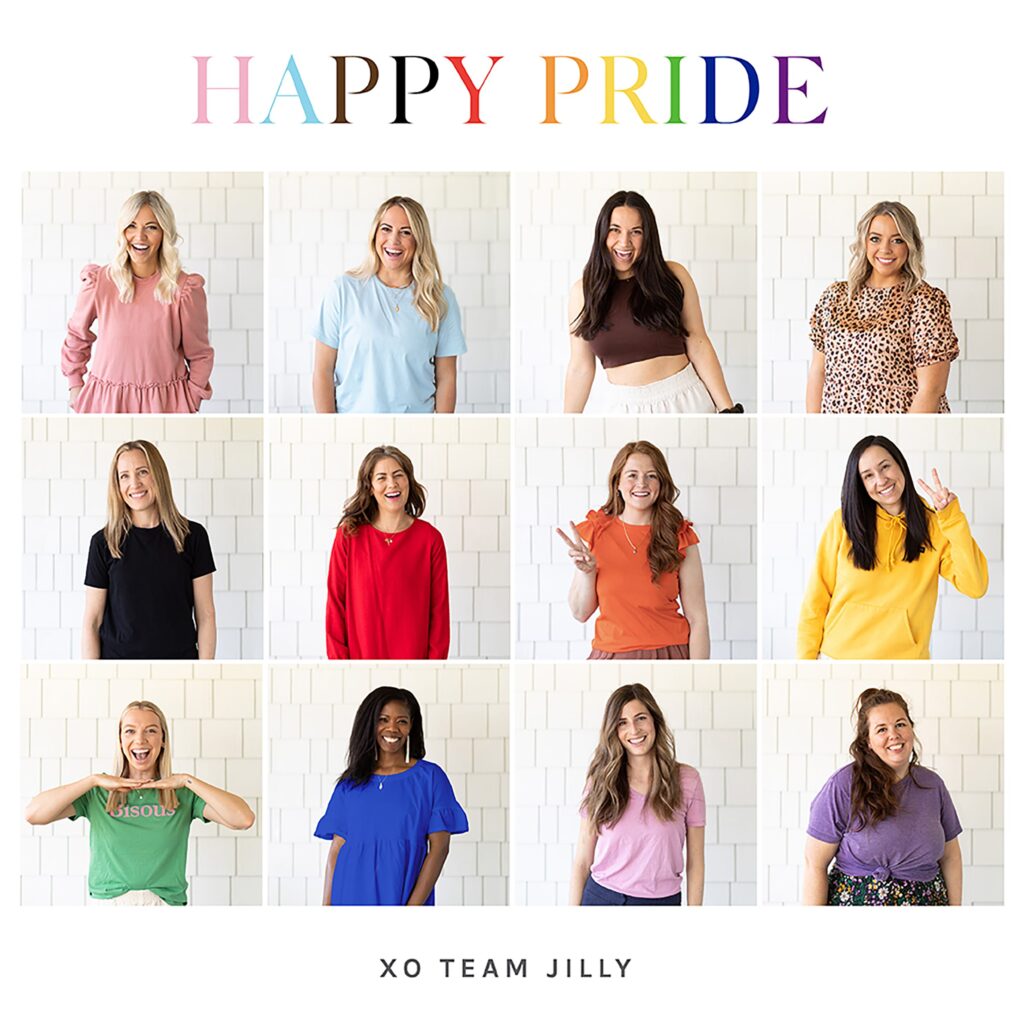I am BACK with another Cameo update! In honour of Lesbian, Gay, Bisexual, Transgender, Queer+ Pride Month we wanted to donate this month’s funds to a local organization that is helping support the mental wellbeing of members of the 2SLGBTQIA community. After a lot of research and a much-appreciated referral from our friend Rebecca at You Are Collective, we discovered are so happy to have connected with new friends at Our Landing Place. Our Landing Place is an amazing, queer-owned, and run collective of LGBTQ2IA+ identified therapists providing competent and affirming inclusive mental health care to folks across Canada.
This month with YOUR help we were able to raise… drum roll, please … $6,700 to donate to Our Landing Place. If you would like to help Our Landing Place reach more clients please consider donating to their GoFundMe here! Today, their team is taking over the blog to share how this month’s donation will help them continue to offer free psychoeducation and emotionally supportive youth groups facilitated by their incredible group of therapists. Take it away!
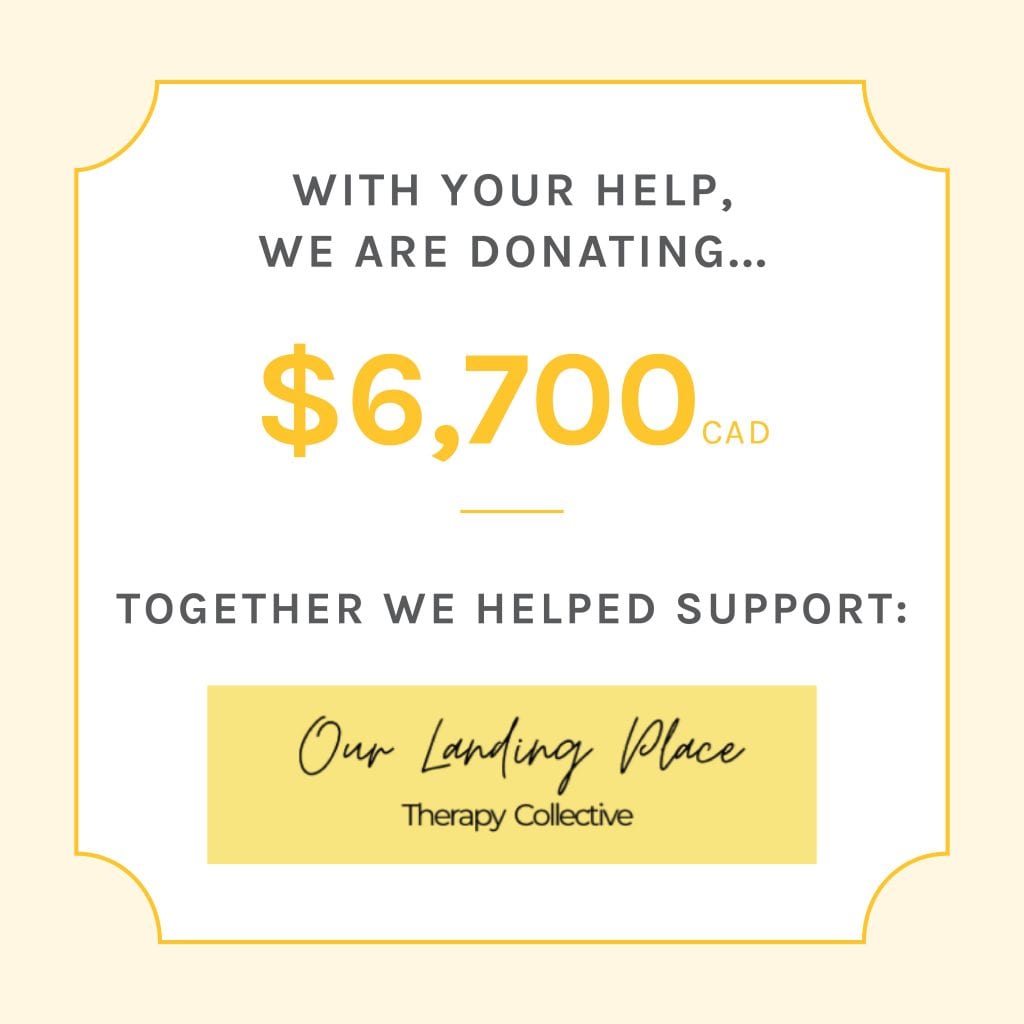
Did you know that being queer or trans was both illegal and a diagnosable mental illness throughout most of our lifetimes? It’s only recently that the Diagnostic and Statistical Manual (DSM) that is used to diagnose illnesses removed Homosexuality and Gender Identity Disorder, and we are still working on banning Conversion Therapy in many places. This long history of shame and stigma feeds directly into medical models, shaping the ways in which queer and trans folks access mental and physical health services and creating barriers to safe and effective treatment options.
The intricate nuances and complex intersections of identities within the LGBTQ2IA+ community are often misunderstood by many well-meaning and hard-working mental health professionals.
Intricate nuances and complex intersections? That sounds complicated!
Well, it is and it isn’t! Essentially, we all have identities and elements of ourselves that put us in positions of privilege or marginalization (see the image below to locate some of your own intersections). When we look at the ways in which these diverse levels of power intersect as well as how they impact our day to day lives, we start to understand people as more than just one identity or attribute, and we begin to see how they may face challenges with which we can relate or that we just don’t get because we don’t share that lived experience. We also begin to understand that queer and trans folks live with mental health challenges, diagnoses, and life stressors that have absolutely nothing to do with their queerness, and that to presume otherwise can invalidate their experiences as a well-rounded and whole human being.
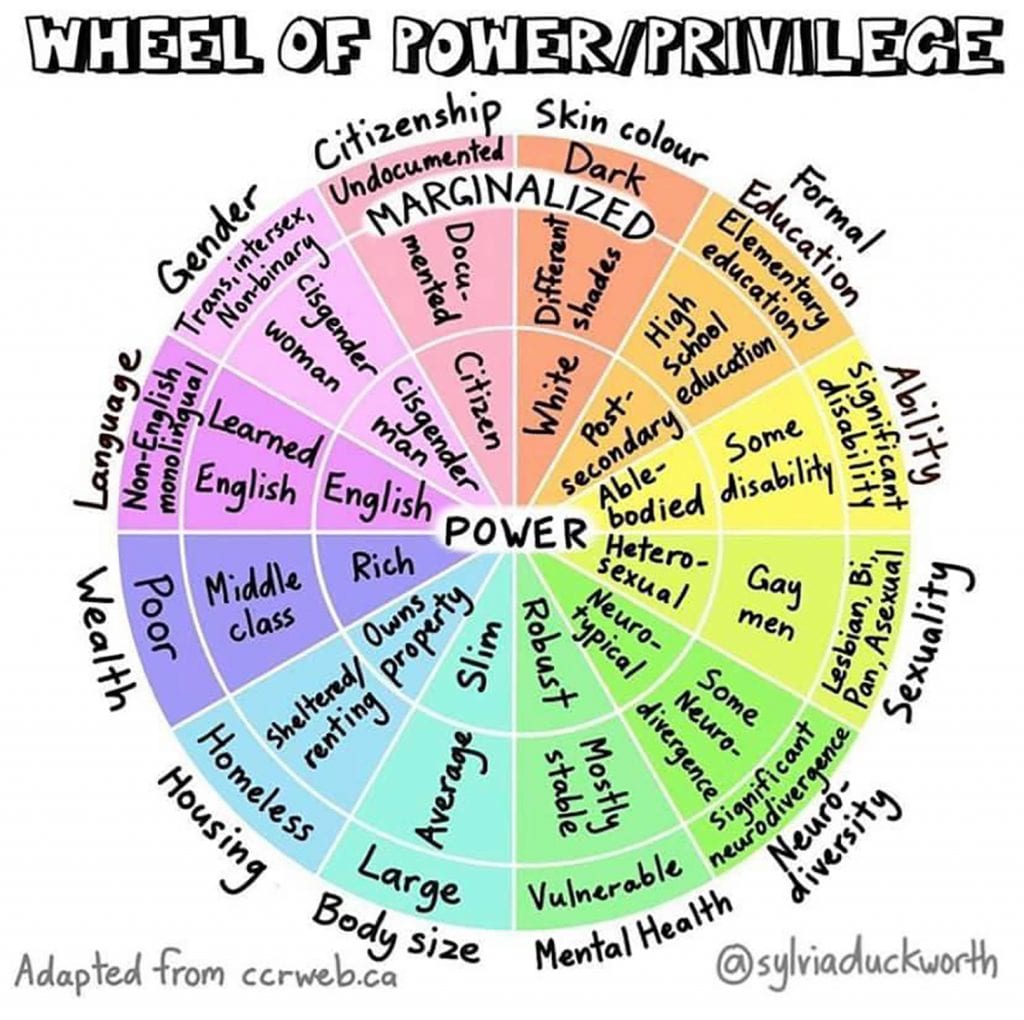
Image credit: @sylviaduckworth
Lots of therapists talk about working with the LGBTQ2IA+ community. Surely they’re all providing good care to their clients?
While many therapists advertise that they work with the community, they often lack the deep understanding of what it means to navigate the world as a queer or trans person. This isn’t to say that straight cisgender (when you identify with the gender assigned to you at birth) therapists can’t competently and affirmingly work with LGBTQ2IA+ clients. Quite the opposite! What it means is that there is a lot of work that needs to be done in order to truly serve our community, and I believe it starts with making the time to understand their own internal biases, pinpoint their social location (another way of describing those intersections we talked about), and make the time to learn from the lived experiences of folks within the queer and trans community. This can also be true of LGBTQ2IA+ identified therapists. Even within our community, we don’t all share lived experiences. For example, I’m white, which means that I don’t have lived experience as a person of colour and haven’t navigated my world with the marginalization that can come with being a part of a racialized community. It’s my job as a white person to learn from those with lived experience and to not assume to ever know my BIPOC (Black, Indigenous, and People of Colour) client’s experiences.
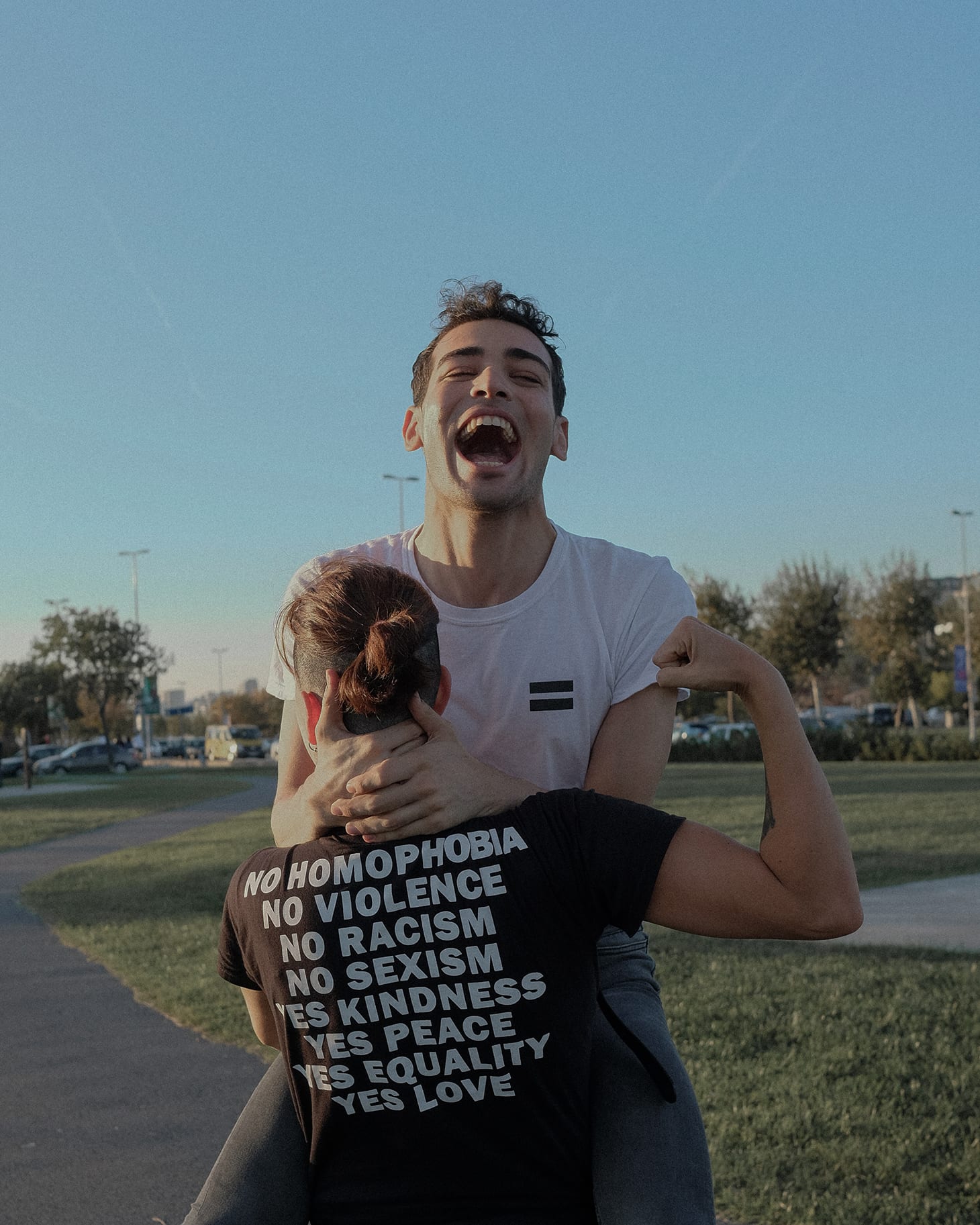
Ah, that’s easy! Therapists can just ask their clients to tell them about their own experiences so that they can understand them and help them more, right?
It sounds like a perfect solution, and on some level it has merit. Every single client that we see is different and has their own unique intersections. It can be empowering to give clients space to tell us about themselves without us pushing our agendas or assumptions on them.
Unfortunately, the flip side of that is that no one wants to pay $150+ to educate their therapist for an hour every week, and our clients shouldn’t have to educate us. Additionally, we shouldn’t expect marginalized folks to do the emotional labour of educating us, especially for free. There are some incredible advocates and educators offering superb information, workshops and engagement opportunities, and whether you’re a therapist, part of the medical industry, or someone who’s simply interested in expanding their worldview and understanding of those around them, I encourage you to seek out education opportunities from folks with lived experience.
I’m in! Where do I find these learning opportunities?
Full disclosure, I’m about to slide in a little promo for our clinic. We host an annual conference called Queering Mental Health, which centres LGBTQ2IA+ voices offering deep insights into the intersections of queerness and mental health. Our next conference takes place on April 11 & 12, 2022 (it’s all being recorded so you’ll have lifetime access to watch it at your leisure if you can’t join us live) and is open to professionals and the general public. There will be a wide range of engaging workshops, panels and presentations that go far beyond the ABCs of LGBT. It’s an incredible opportunity to learn from professionals in the field of mental health who are queer and trans-identified, and you can save $100 by using the discount code TEAMJILLY until July 15th, 2021. Click here to get your tickets!
Of course, Our Landing Place isn’t the only place you can access high-quality education created through lived experience. Some of my favourite queer and trans educators and advocates include Ivan Coyote, Jeffrey Marsh, Ericka Hart, Lucie Fielding, Kate Welsh, Blair Imani, and Cicely Blain.
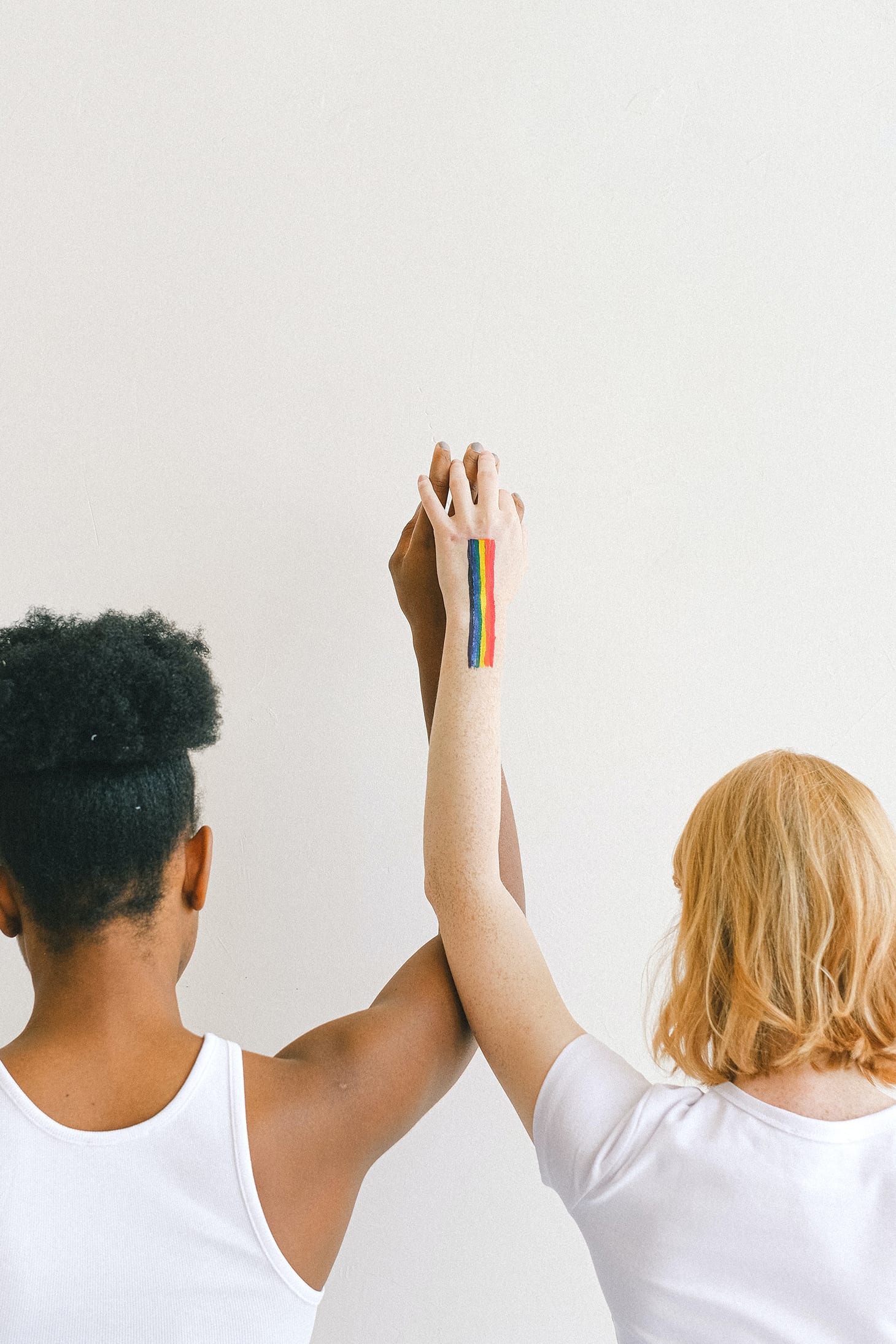
How do I know when a therapist is competent and affirming?
The easiest way to find out is to ask, and not just ‘are you competent and affirming?’, but ‘how are you competent and affirming?’. Many therapists offer free consultations where you can meet with them for a short amount of time to see if you want to work with them. And that there is the key thing… do YOU want to work with them? The consultation is for YOU to see if they’re a good fit, if they can provide the quality and type of service you desire, and if you jive with them in a way that makes you want to go deep and be vulnerable opening up to them. It’s an opportunity for you to interview them and ask questions to arm yourself with the knowledge you need to make the best choice for yourself.
Don’t be afraid to reach out to therapists and find someone who you want to work with. It can certainly be a daunting feeling, but there are so many wonderful mental health professionals out there, and you deserve to connect with someone who gets you.
To stay in touch with us and for more content, follow us on Instagram or Facebook.

About the author: Alice Curitz (she/her, MA, RCC CCC) is the Founder and Clinical Director of Our Landing Place, a collective of LGBTQ2IA+ identified counsellors working with LGBTQ2IA+, Polyamorous, and Neurodiverse communities across Canada. Alice has designed and facilitated inclusivity and diversity training programs across Canada for almost 15 years. As well as direct therapy with individuals and partners, she provides case consultation services to counsellors and other mental health professionals, and offers inclusivity consulting services to practitioners, professionals, educators and organizations worldwide. Alice is grateful to live, work and play on the unceded traditional Epekwitk Mi’kmaq territory.

